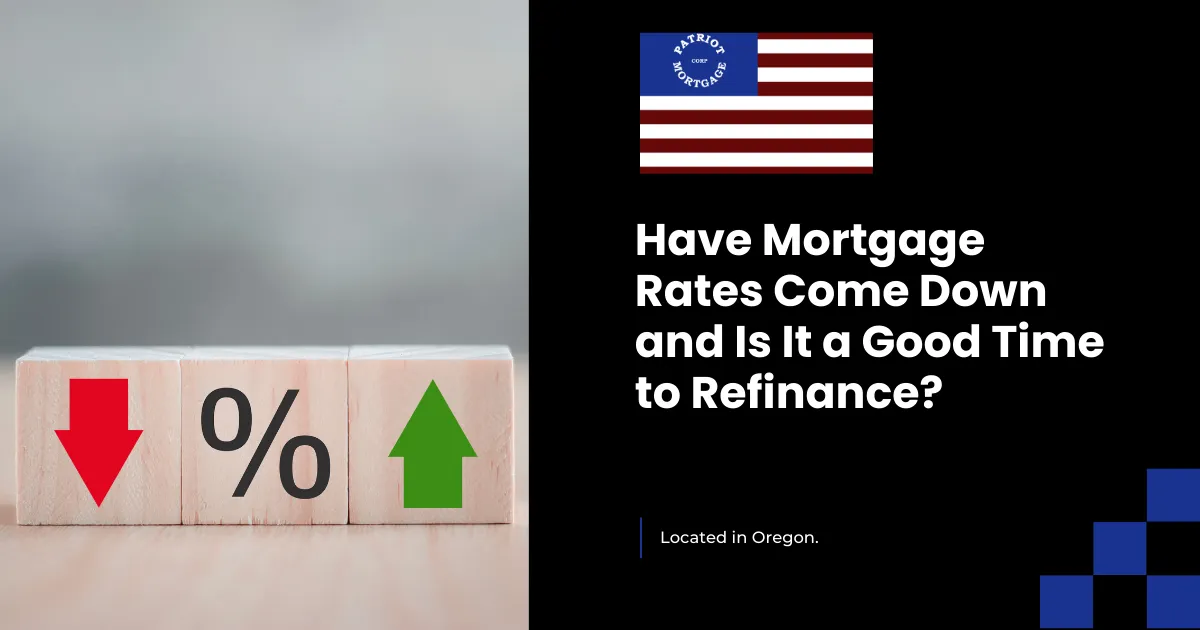
Have Mortgage Rates Come Down and Is It a Good Time to Refinance?
In today’s dynamic mortgage market, homeowners often find themselves asking, "Have rates really come down? Is it a good time to refinance?" With fluctuating interest rates driven by economic conditions, understanding whether refinancing is a smart move requires careful consideration of several factors. Let’s break it down.
Understanding Current Mortgage Rates
Mortgage rates are influenced by a combination of market forces, including inflation, Federal Reserve policies, and overall economic performance.
When Refinancing Makes Sense
Refinancing is essentially replacing your current mortgage with a new one, typically at a lower rate or with a more favorable term. But even with lower rates, refinancing isn’t a one-size-fits-all solution. Here are some scenarios where refinancing could be beneficial:
Lowering Your Monthly Payment: If current rates are significantly lower than your existing mortgage rate, refinancing can reduce your monthly payments, allowing you to free up cash flow for other expenses.
Switching from an Adjustable-Rate Mortgage (ARM) to a Fixed-Rate Mortgage: If you have an ARM and are concerned about rising rates in the future, now might be a good time to lock in a fixed rate while they are relatively low.
Shortening Your Loan Term: If your income has increased, refinancing to a shorter-term mortgage, like a 15-year loan, can help you pay off your mortgage faster while saving thousands in interest.
Consolidating Debt: If you have built significant equity in your home, you can use a cash-out refinance to consolidate high-interest debt, such as credit cards or personal loans, into your mortgage, potentially lowering your overall interest expense.
When to Hold Off on Refinancing
Not every situation calls for a refinance. Here are some instances where it might be better to wait:
Closing Costs: Refinancing isn’t free. If you plan to sell your home in the near future, these costs may outweigh any savings from a lower rate.
Break-even Point: Refinancing only makes sense if you plan to stay in your home long enough to reach the "break-even point"—the time it takes for the monthly savings to cover your closing costs. If you’re unsure how long you’ll stay, refinancing might not be worth the expense.
Credit Score: If your credit score has declined since you took out your original mortgage, you may not qualify for the best rates. It could be worth working on improving your credit before you refinance to secure a more favorable deal.
Is Now the Right Time to Refinance?
Ultimately, whether it’s a good time to refinance depends on your individual financial situation, the current rates, and your long-term homeownership goals. Take time to calculate your potential savings, and consider speaking with a trusted mortgage broker or financial advisor to help you weigh your options.
If you believe that refinancing aligns with your financial goals, now may be the perfect time to explore your options and lock in a lower rate while they are available.
Conclusion
For some homeowners, now might be the perfect time to refinance. But refinancing is a big decision that requires consideration of your financial goals and homeownership plans. Before making a move, assess your situation, compare rates, and speak with a mortgage professional to ensure you’re making the best choice.
References:
Freddie Mac
Mortgage News Daily
Social Media Links
YouTube



